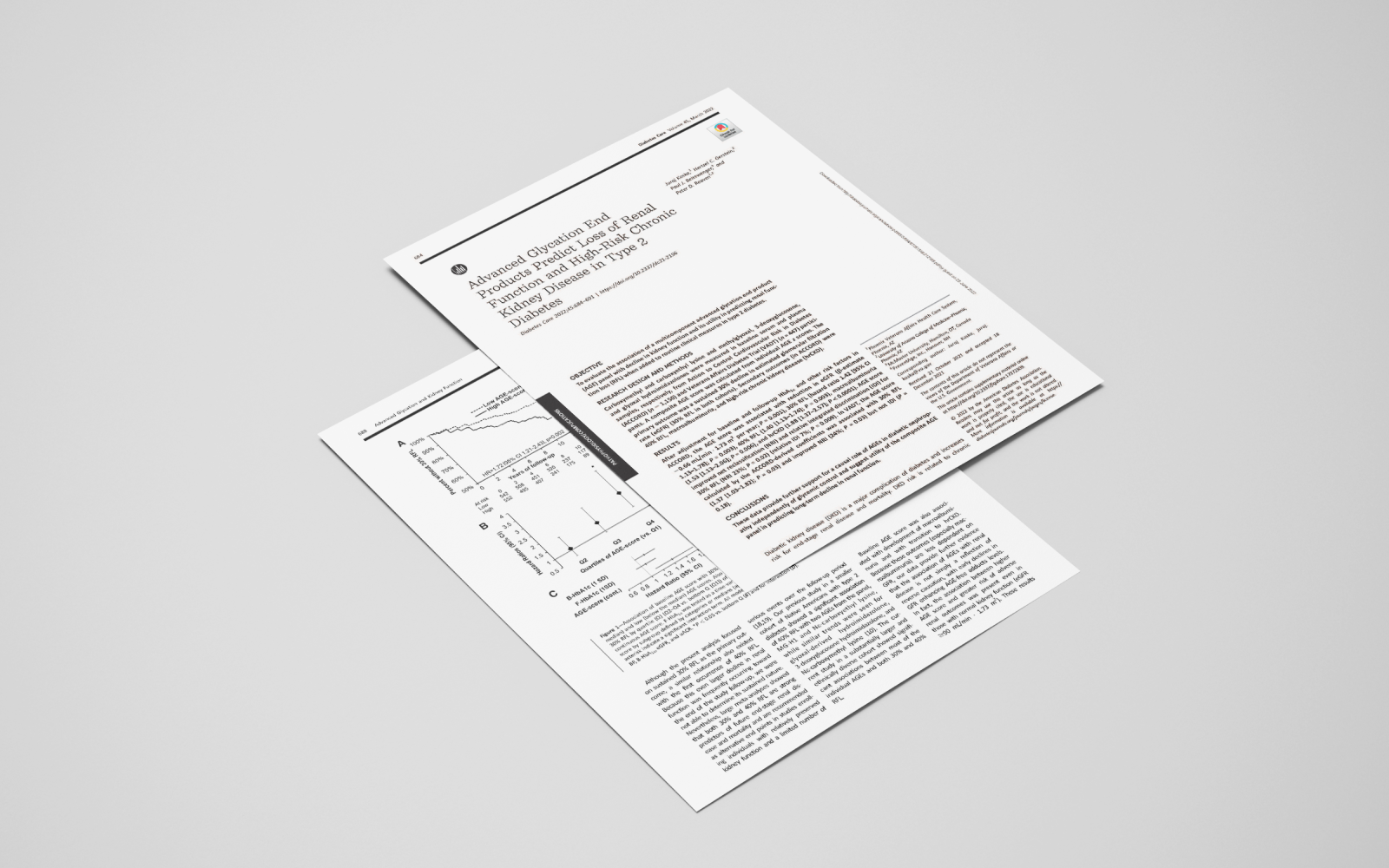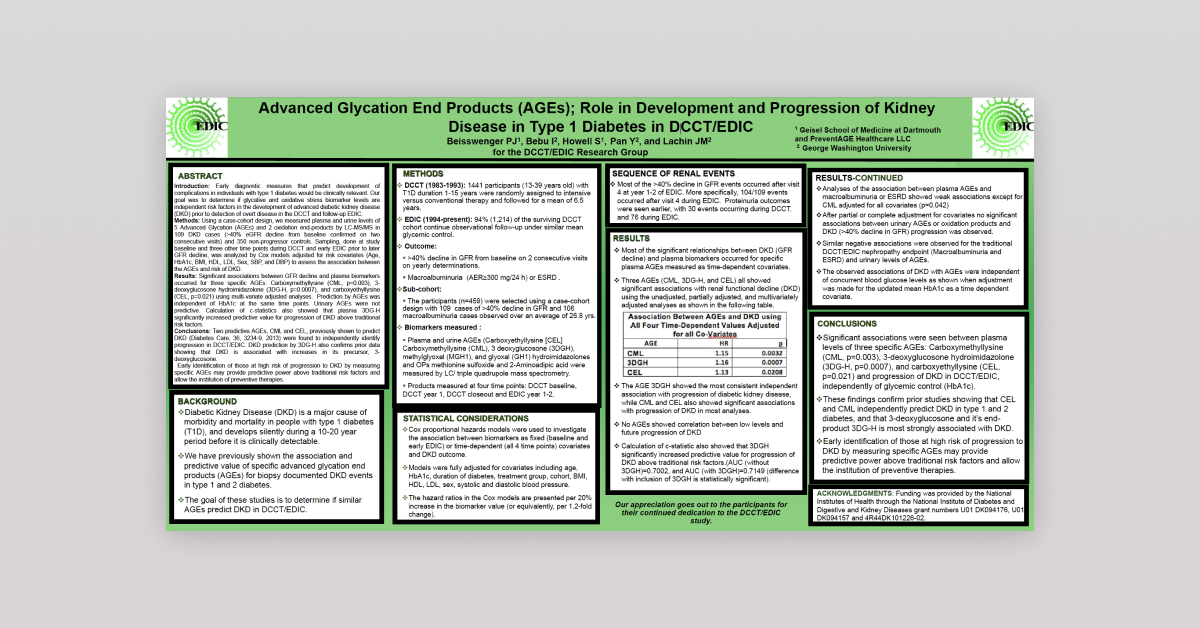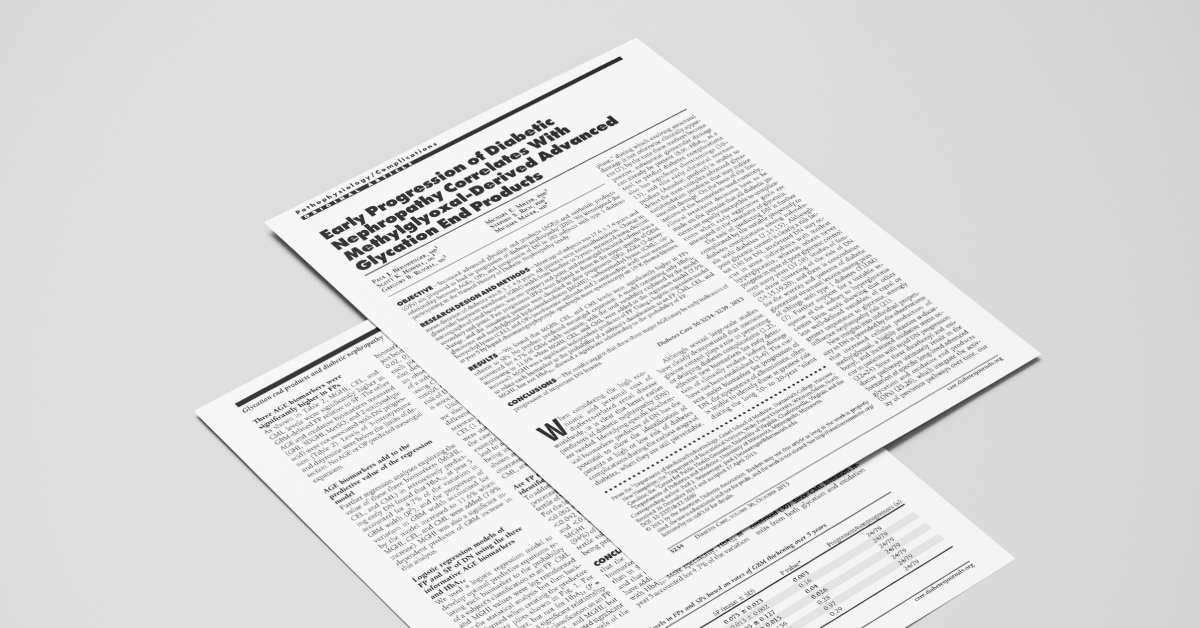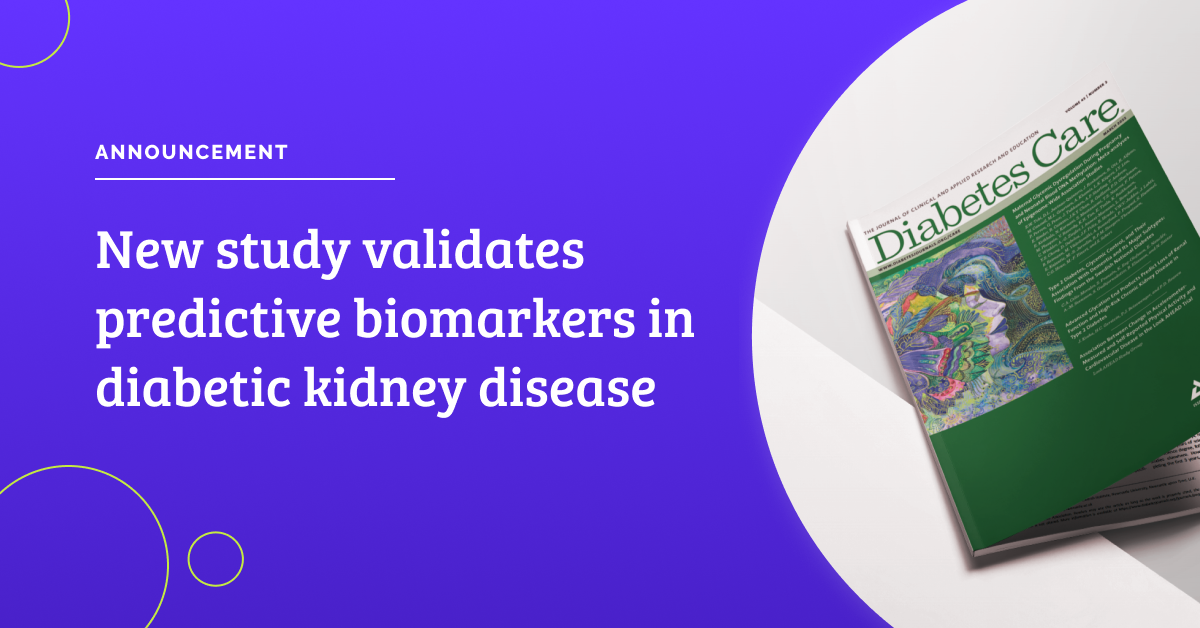PUBLICATION DATE: MARCH 1, 2022
Abstract
Objective: To evaluate the association of a multicomponent advanced glycation end product (AGE) panel with decline in kidney function and its utility in predicting renal function loss (RFL) when added to routine clinical measures in type 2 diabetes.
Research design and methods: Carboxymethyl and carboxyethyl lysine and methylglyoxal, 3-deoxyglucosone, and glyoxal hydroimidazolones were measured in baseline serum and plasma samples, respectively, from Action to Control Cardiovascular Risk in Diabetes (ACCORD) (n = 1,150) and Veterans Affairs Diabetes Trial (VADT) (n = 447) participants. A composite AGE score was calculated from individual AGE z scores. The primary outcome was a sustained 30% decline in estimated glomerular filtration rate (eGFR) (30% RFL in both cohorts). Secondary outcomes (in ACCORD) were 40% RFL, macroalbuminuria, and high-risk chronic kidney disease (hrCKD).
Results: After adjustment for baseline and follow-up HbA1c and other risk factors in ACCORD, the AGE score was associated with reduction in eGFR (β-estimate -0.66 mL/min ⋅ 1.73 m2 per year; P = 0.001), 30% RFL (hazard ratio 1.42 [95% CI 1.13-1.78]; P = 0.003), 40% RFL (1.40 [1.13-1.74]; P = 0.003), macroalbuminuria (1.53 [1.13-2.06]; P = 0.006), and hrCKD (1.88 [1.37-2.57]; P < 0.0001). AGE score improved net reclassification (NRI) and relative integrated discrimination (IDI) for 30% RFL (NRI 23%; P = 0.02) (relative IDI 7%; P = 0.009). In VADT, the AGE score calculated by the ACCORD-derived coefficients was associated with 30% RFL (1.37 [1.03-1.82); P = 0.03) and improved NRI (24%; P = 0.03) but not IDI (P = 0.18).
Conclusions: These data provide further support for a causal role of AGEs in diabetic nephropathy independently of glycemic control and suggest utility of the composite AGE panel in predicting long-term decline in renal function.







